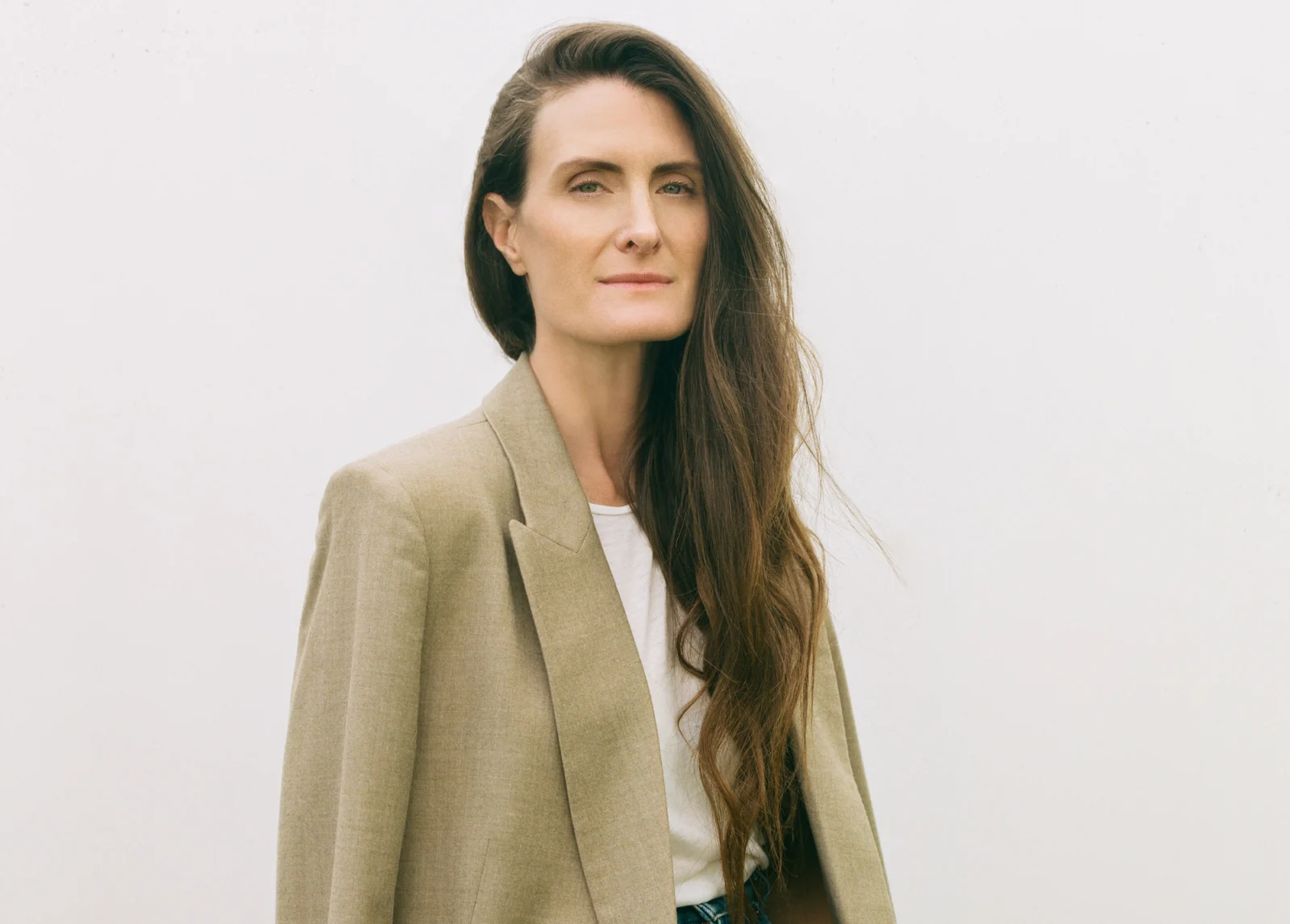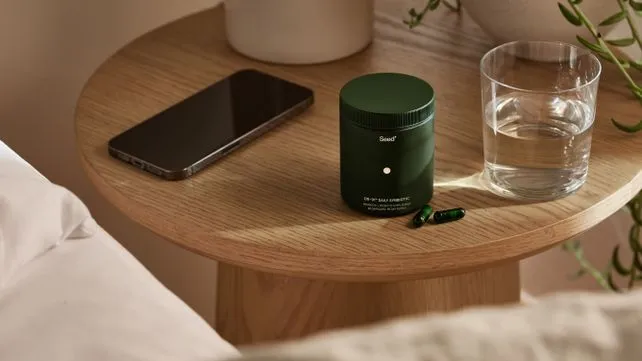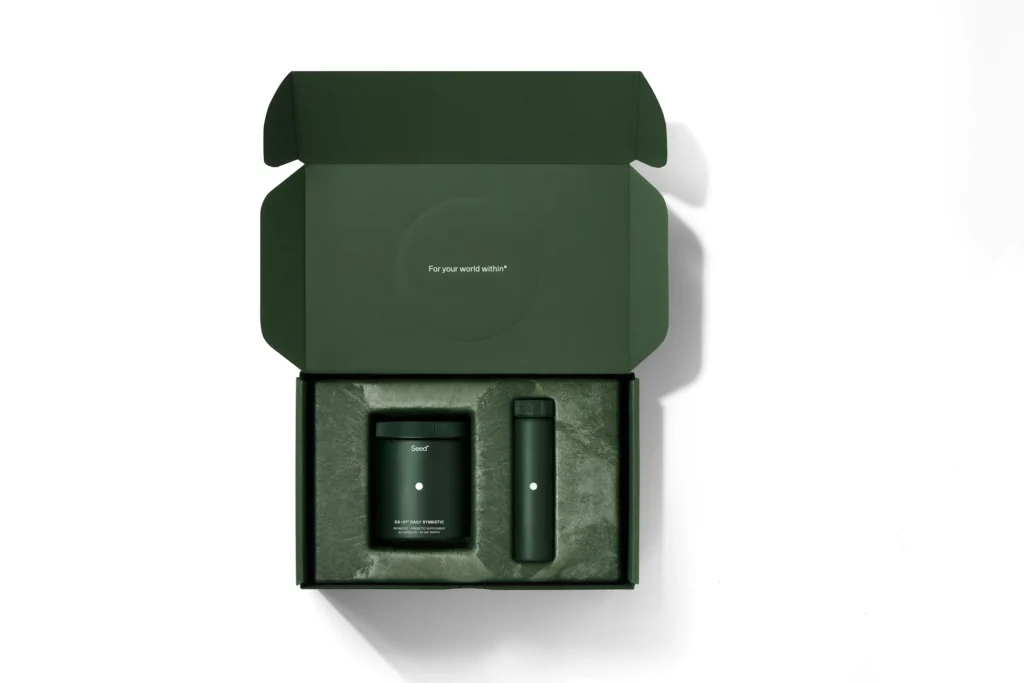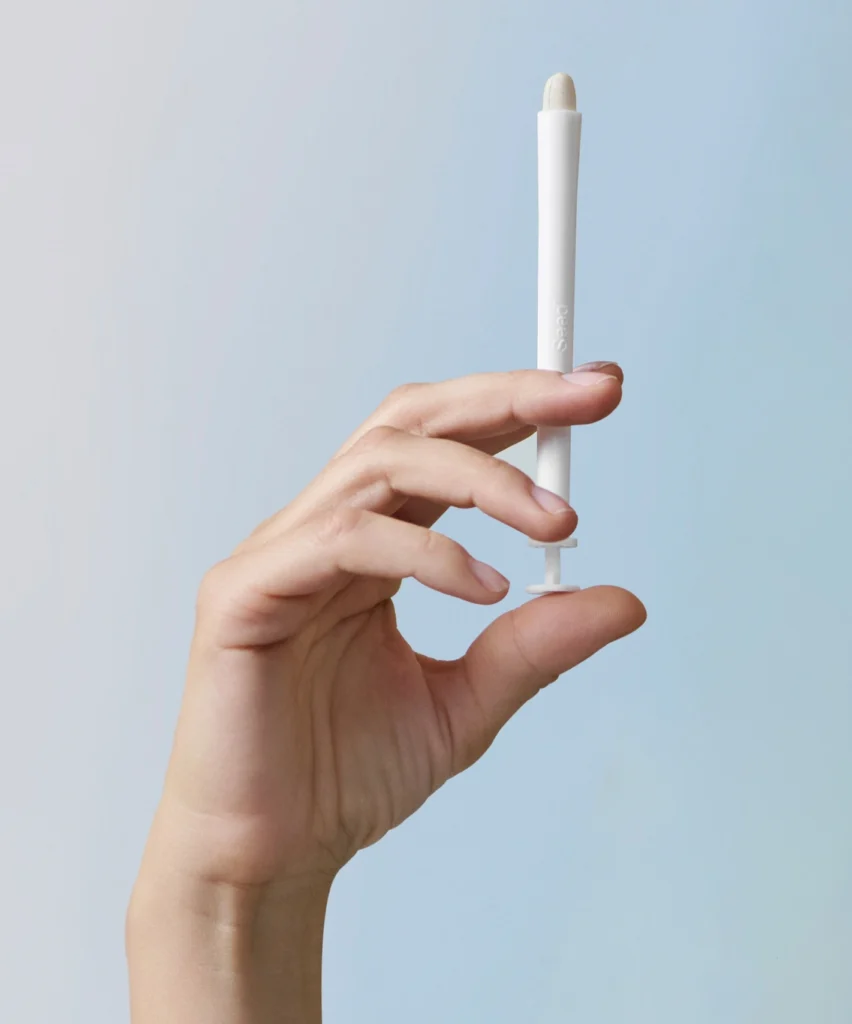CEO Corner: Seed Health’s Ara Katz on the Science of Probiotics

Katz co-founded Seed Health in 2015, growing it into one of the biggest brands in the booming microbiome and probiotics space
Seed Health is on a mission to take the guesswork out of picking a probiotic, all while bringing more scientific rigor to a supplement industry often slammed for leading with marketing claims over solid research.
Founded in 2015 by co-CEOs Ara Katz and Raja Dhir, Seed has become one of the best-selling probiotic products in the United States, powered by its flagship DS-01, a daily “symbiotic” that combines probiotics and prebiotics into one pill.
Seed Health describes itself as a “microbiome science” company instead of a supplement maker, and its website contains reams of research pointing to the DS-01’s effectiveness over rival probiotics.
In 2021, the company secured $40 million in Series A financing to expand its product line and fund new clinical research. In 2024, Seed launched CODA, a computational biology platform for microbiome research, released a vaginal probiotic for women’s health and expanded into Target, its first retail partnership.
Katz sat down with Athletech News to share what makes the DS-01 different from other probiotic products on the market, explain why vaginal probiotics may be the future of women’s health, and detail what’s next for Seed over the coming years.
The following conversation has been lightly edited for clarity and length.
Athletech News: Can you tell us about your background and why you decided to create Seed?
Ara Katz: I have an eclectic background – I come from consumer tech and I also spent time in media, so the through line of my career has always been in storytelling and translating frontier tech into relevant consumer health innovations. You’ll notice I have no MD or PhD as a suffix to my name, though I run a science company. Outside of my professional life, my mom was diagnosed with pancreatic cancer when I was 16, and I started reading scientific papers and learning about clinical trials. Ever since then, I’ve been a fascinated science enthusiast and somebody who’s spent a lot of time deeply understanding health biology, where science is heading and how that impacts the decisions that we make for our bodies and our health.
I felt from a very young age that there’s a real translation problem between how science is communicated and how we ultimately make decisions that impact our lives. So the microbiome was this perfect confluence for me of a frontier field of science that was ripe for translation into not just consumer health innovations that could impact health, but also the storytelling of the microbiome and how this new framework of biology could shape the future of health.

ATN: How does Seed approach storytelling around the microbiome?
AK: We work from this beautiful tenant that I can’t take credit for, but it certainly inspires me every day, which is the idea that science isn’t finished until it’s communicated. As it relates to our marketing, I think the microbiome as a framework really upends and certainly augments so much of what we understand today about human health, biology and pathology.
We’ve always led with science and education. We also want people to think of our brand as kind of the anti-marketing brand in some ways – we do very provocative things sometimes to try and get people to shift their perspectives in the same way the microbiome gets us to think differently about health. We’re always trying to find new and interesting ways to Trojan-horse science into the cultural zeitgeist.
ATN: Can you share any examples of Seed’s provocative marketing?
AK: We did a big Citizen Science campaign a few years ago, it was called the #GIVEASHIT campaign. Basically, we crowdsourced the largest image database of poop – human stool – in the world, and acquired an AI that can diagnose stool off of an image and Bristol Stool-type it, which is the diagnostic criteria for stool. It was a big educational and cultural zeitgeist moment that was covered by a lot of people. It was also a cool way of us saying, “Hey, stool is a really important biomarker of health.”
ATN: What separates Seed’s flagship product, the DS-01, from other probiotics on the market?
AK: DS-01 is the most genomically diverse probiotic that exists in the market (in the U.S.) and internationally. That’s very important because when something’s more genomically diverse, you have the capability of impacting a heterogeneous population regardless of their starting microbiome. It’s the equivalent of making a t-shirt that’s one size fits all.
The second is just the strain selection itself. The quality of our clinical research is another major differentiator. DS-o1 just completed two clinical trials: we’re the first to demonstrate antibiotic maintenance of gut immune and gut barrier function, as well as enrichment of bifidobacteria in the gut alongside and after broad-spectrum antibiotics. And we just completed an IBS study at Harvard, also with positive results.

ATN: Why did Seed decide to create the VS-01, a vaginal probiotic?
AK: Going back to our initial vision, we saw that the microbiome was far beyond the gut. We began our vaginal microbiome program very early in our journey of building Seed. There are so many unmet medical needs in women’s health that are a consequence of everything from overuse of antibiotics to a complete marginalization and underfunding of innovations in the field.
The vaginal microbiome is probably one of the most critical discoveries in all of biology. We now know that it’s the foundation of gynecological, reproductive and neurogenital health. There’s really nothing that happens in the vagina where microbes and the microbiome aren’t involved. By the way, the gut and the vagina couldn’t be more opposite. In the gut, you want a huge amount of diversity, think about it as a rainforest. The vagina is like an apple orchard.
ATN: What types of products could Seed look to create in the years ahead?
AK: Many. I’ll just say we have programs in the skin microbiome, nutrition, gut-brain access and metabolic health.

ATN: How do you work against the negative perception many people have of the supplement industry?
AK: The skepticism of the supplement industry is incredibly well warranted. The FDA has important work to do and it doesn’t really have the bandwidth to enforce all of the bad actors. I think that puts a lot of onus on the consumer to determine if something has integrity and scientific credibility. At the same time, I also think people sometimes underestimate consumers. There are cues you can look at: for example, who are the scientists that are listed on the website? Are they credible? Do they have any scientific studies? Have you shared this with your doctor or another health practitioner that you trust?
I also think there’s a whole new wave of companies in this space that are trying to do the right thing and are trying to do good science.
ATN: Should everyone be taking a probiotic?
AK: We conceptualized DS-01 to answer the question, “Why would an otherwise healthy person take a probiotic every day?” You have to remember, “otherwise healthy” has a big asterisk. 80 million people in the United States have a GI event every single week and 15% of the United States has diagnosed IBS. So we’re talking about very large cohorts of people that experience some level of discomfort, and that’s before you really start to characterize what it means to be a human being walking around with a body that simply was not made for the built environment we live in. We’ve published papers about dishwasher rinse aids and laundry detergent just living in our built environment that assault our gut barrier and the epithelial barriers of our whole body. Most people have some opportunity to improve digestion or GI health. That’s just from statistics.
But if you said to me, I can take DS-01 and I only have the money for that, or I can eat healthy and incorporate more plants into my diet, I’d tell you to focus on nutrition. But for $1.67 a day, and with over a million people who’ve said (Seed) literally has changed my life, I think we’ve created something that’s made a tremendous impact on people’s overall health.
ATN: What’s your vision for the future of Seed?
AK: When people think about the microbiome, I want them to think about us both for education and understanding, as well as the leading innovations in the space. And that will be in more and more parts of your life, not just in capsules. We’re thinking about all the areas of your home and of your well-being where microbiome science and/or the power of microbes can nurture this ecology of your body that is so impactful to your overall health



